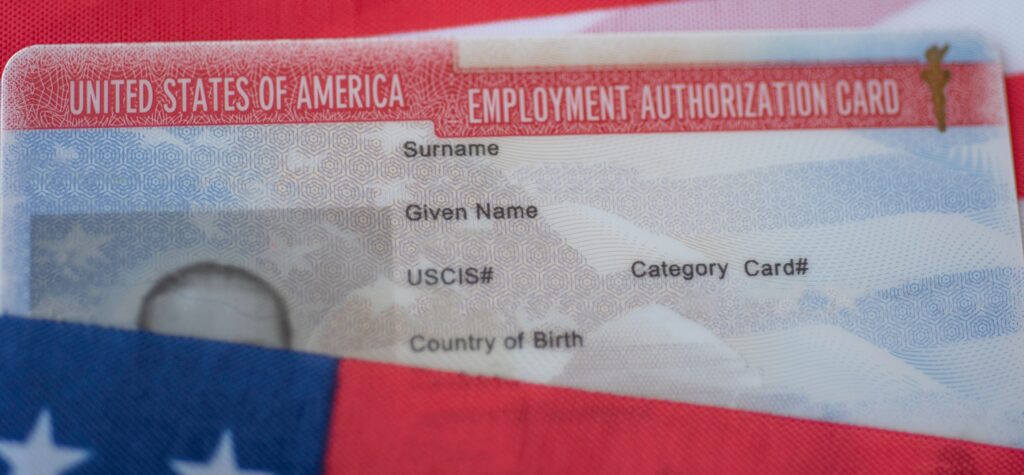Written by Colleen F. Molner, Esq., Partner, N.C. Board Certified Immigration Law Specialist.
H-4 employment authorization document (EAD) approvals are expected to experience serious delays beginning in early 2025 because of the expiration of a Department of Homeland Security (DHS) settlement agreement.
Fast facts and information to know
— The Form I-765 is filed by certain H-4 applicants who are eligible to seek employment authorization in the U.S. Often, the Form I-765 is filed together concurrently with their I-539 application to change/extend H-4 status and the principal’s (spouse’s) Form I-129 petition for H-1B status.
— Historically, United States Citizenship and Immigration Services (USCIS) typically processed the Form I-765 and Form I-539 at the same time as the principal’s Form I-129. However, changes made during the Trump administration in 2019 led to the abandonment of that practice, wherein USCIS decoupled the I-539 and I-765 applications from the principal’s I-129 petition, leading to extensive processing times and backlogs.
— DHS agreed in a settlement resulting from the case Edakunni v. Mayorkas in 2022 to return to processing and adjudicating I-539 and I-765 applications together with the I-129 petition, which has served as a major benefit to H-4 spouses and their employers. Further, if the principal spouse’s I-129 petition was filed under the premium processing service, under this settlement, USCIS generally has honored the same expedited timeline for the I-539 and I-765.
— That settlement agreement in Edakunni v. Mayorkas is set to expire on January 18, 2025, and is not expected to be renewed by the incoming Trump administration, which will take office two days later. In that case the Form I-539 and the Form I-765 will revert back to not being processed together with the primary I-129 petition. This could therefore cause backlogs, delays in processing times (which could exceed six months or more), and the potential for lapses in work authorization for applicable H-4 spouses.
— These lapses in work authorization have the potential to cause frustrations and disruptions for both employers, who could lose valuable employees, as well as the foreign nationals who might be unable to work in the United States during that time frame.
— In addition, effective January 13, 2025, the automatic extension period for employment authorization for certain EAD renewal applicants, including H-4 spouses, will officially increase from up to 180 days to up to 540 days. This means that if an EAD renewal is timely filed (before expiration of existing EAD), the H-4 spouse is eligible for up to 540 days of automatic work extension beyond their EAD expiration, until the EAD renewal is approved, or until the expiration date on the H-4 spouse’s I-94, whichever is sooner. This could ease some employment disruptions and frustrations when experiencing future EAD processing delays.
How to prepare for potential H-4 EAD delays?
Applicable H-4 spouses who are eligible to file for their initial employment authorization document (within 180 days of EAD expiration), or a renewal, should do so as soon as possible. They should also utilize premium processing, if eligible, in an attempt to have their Form I-765 processed with the primary beneficiary’s I-129 petition before the expiration of the settlement in Edakunni v. Mayorkas.
H-4 spouses who have already applied for their initial employment authorization document, or a renewal, who did not file with premium processing should upgrade, if possible, for the same reasons explained above.
Applicable spouses should also consider consulting with experienced immigration counsel to discuss the best strategies and/or to determine any other options available to them.
What is an H-4 employment authorization document (EAD)?
H-4 spouses are eligible to file for an employment authorization document provided their spouse is the principal beneficiary of an approved Form I-140, Immigrant Petition for Alien Worker, or has been granted H-1B status under “sections 106(a) and (b) of the American Competitiveness in the Twenty-first Century Act of 2000 as amended by the 21st Century Department of Justice Appropriations Authorization Act (AC21).”
Other information to know
The H-4 EAD program is speculated to be at risk during the second Trump administration, as that program, along with others, such as the OPT program for F-1 students, could be targeted for a scale back or rescission by an executive order. The attorneys at Garfinkel Immigration Law Firm are monitoring the situation closely and will alert clients when and if more information becomes available.
H-4 spouses should consider consulting with experienced immigration counsel to determine if there are any other employment options available for them.

